Filter by
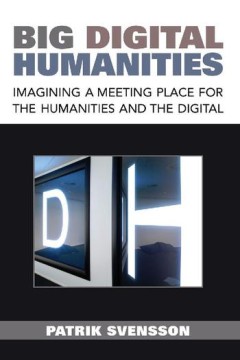
Big Digital Humanities : imagining a meeting place for the humanities and the…
Big Digital Humanities has its origins in a series of seminal articles Patrik Svensson published in the Digital Humanities Quarterly between 2009 and 2012. As these articles were coming out, enthusiasm around Digital Humanities was acquiring a great deal of momentum and significant disagreement about what did or didn’t “count” as Digital Humanities work. Svensson’s articles provided a w…
- Edition
- -
- ISBN/ISSN
- 9780472073061
- Collation
- xx, 279p. : ill.
- Series Title
- -
- Call Number
- 001.30285 SVE b
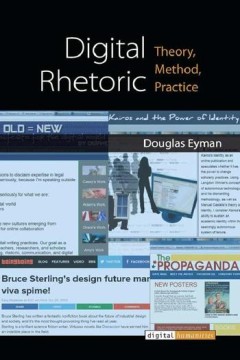
Digital rhetoric : theory, method, practice
A survey of a range of disciplines whose practitioners are venturing into the new field of digital rhetoric, examining the history of the ways digital and networked technologies inhabit and shape traditional rhetorical practices as well as considering new rhetorics made possible by current technologies
- Edition
- -
- ISBN/ISSN
- 9780472072682
- Collation
- 163p. : ill.
- Series Title
- -
- Call Number
- 808.00285 EYM d

Playful mapping in the digital age
From Mah-Jong, to the introduction of Prussian war-games, through to the emergence of location-based play: maps and play share a long and diverse history. This monograph shows how mapping and playing unfold in the digital age, when the relations between these apparently separate tropes are increasingly woven together. Fluid networks of interaction have encouraged a proliferation of hybrid forms…
- Edition
- -
- ISBN/ISSN
- 9789492302137
- Collation
- 156 p.
- Series Title
- Theory on Demand
- Call Number
- 006 PLA p

Young people, ethics, and the new digital media : a synthesis from the GoodPl…
Social networking, blogging, vlogging, gaming, instant messaging, downloading music and other content, uploading and sharing their own creative work: these activities made possible by the new digital media are rich with opportunities and risks for young people. This report, part of the GoodPlay Project, undertaken by researchers at Harvard Graduate School of Education's Project Zero, investigat…
- Edition
- -
- ISBN/ISSN
- 9780262513630
- Collation
- XIV, 109 p.
- Series Title
- -
- Call Number
- 302.2310835 JAM y

Speaking power to truth : digital discourse and the public intellectual
Online discourse has created a new media environment for contributions to public life, one that challenges the social significance of the role of public intellectuals—intellectuals who, whether by choice or by circumstance, offer commentary on issues of the day. The value of such commentary is rooted in the assumption that, by virtue of their training and experience, intellectuals possess kno…
- Edition
- -
- ISBN/ISSN
- 9781771990349
- Collation
- VII, 208 p.
- Series Title
- Cultural Dialectics
- Call Number
- 305.552 SPE s
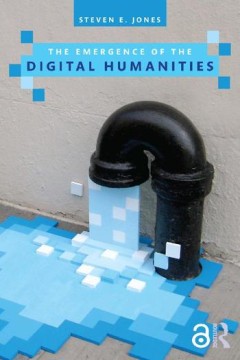
The emergence of the digital humanities
In The Emergence of the Digital Humanities, Steven E. Jones examines this shift in our relationship to digital technology and the ways that it has affected humanities scholarship and the academy more broadly. Based on the premise that the network is now everywhere rather than merely "out there," Jones links together seemingly disparate cultural events—the essential features of popular social …
- Edition
- -
- ISBN/ISSN
- 9780415635516
- Collation
- vii, 212p. : ill.
- Series Title
- -
- Call Number
- 001.30285 JON e
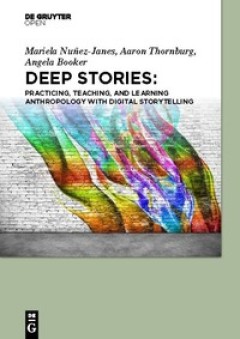
Deep stories : practicing, teaching, and learning anthropology with digital s…
Have you ever wondered what makes storytelling and digital media a powerful combination? This edited volume examines the opportunities to think, do, and/or create jointly afforded by digital storytelling. The editors of this volume contend that digital storytelling and digital media can create spaces of empowerment and transformation by facilitating multiple kinds of border crossings and conver…
- Edition
- -
- ISBN/ISSN
- 9783110539363
- Collation
- xiv, 194p. : ill.
- Series Title
- -
- Call Number
- 360 DEE d
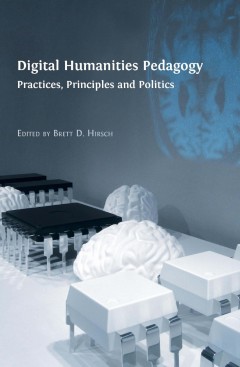
Digital humanities pedagogy : practices, principles and politics
Academic institutions are starting to recognize the growing public interest in digital humanities research, and there is an increasing demand from students for formal training in its methods. Despite the pressure on practitioners to develop innovative courses, scholarship in this area has tended to focus on research methods, theories and results rather than critical pedagogy and the actual prac…
- Edition
- -
- ISBN/ISSN
- 9782821854031
- Collation
- xix, 426p. : ill.
- Series Title
- -
- Call Number
- 001.30711 DIG d
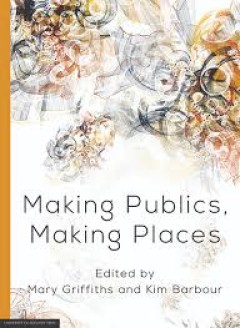
Making publics, making places
This book focuses on the surprising generative possibilities which digital and smart technologies offer media consumers, citizens, institutions and governments in making publics and places, across topics as diverse as Twitter audiences, rural news, the elasticity of the public sphere, Weibo, cultural heritage and responsive spaces in smart cities. Multidisciplinary perspectives engage with crit…
- Edition
- -
- ISBN/ISSN
- 9781925261431
- Collation
- xviii, 216p. : ill.
- Series Title
- -
- Call Number
- 307.76 MAK m
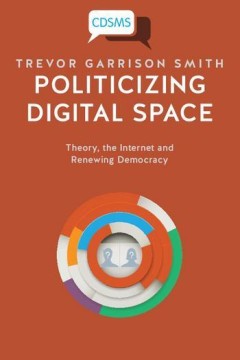
Politicizing digital space : theory, the Internet, and renewing democracy
"The objective of this book is to outline how a radically democratic politics can be reinvigorated in theory and practice through the use of the internet. The author argues that politics in its proper sense can be distinguished from anti-politics by analyzing the configuration of public space, subjectivity, participation, and conflict. Each of these terrains can be configured in a more or less …
- Edition
- -
- ISBN/ISSN
- 9781911534433
- Collation
- vi, 147p. : ill
- Series Title
- -
- Call Number
- 324.7 SMI p
 Computer Science, Information & General Works
Computer Science, Information & General Works  Philosophy & Psychology
Philosophy & Psychology  Religion
Religion  Social Sciences
Social Sciences  Language
Language  Pure Science
Pure Science  Applied Sciences
Applied Sciences  Art & Recreation
Art & Recreation  Literature
Literature  History & Geography
History & Geography